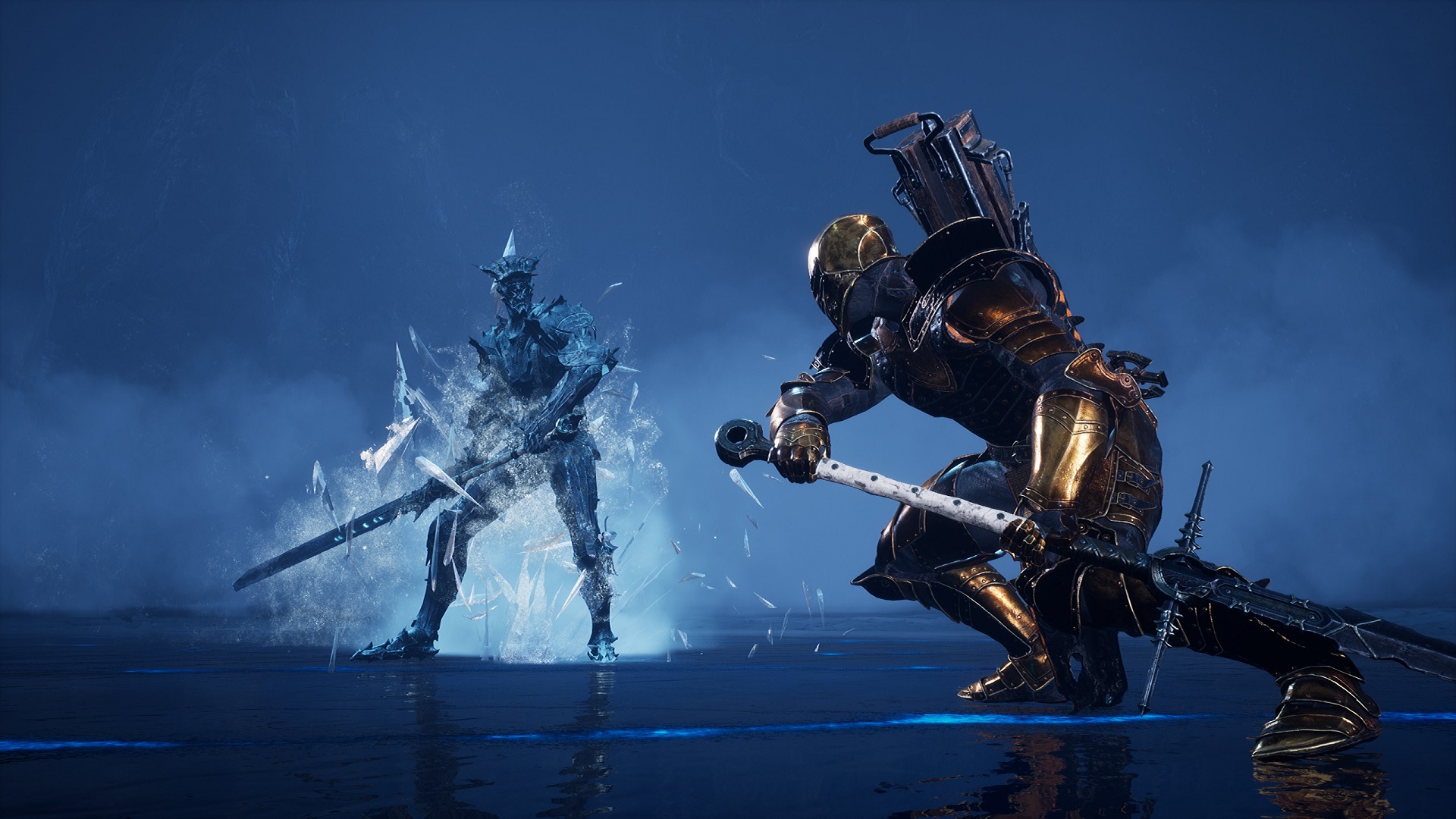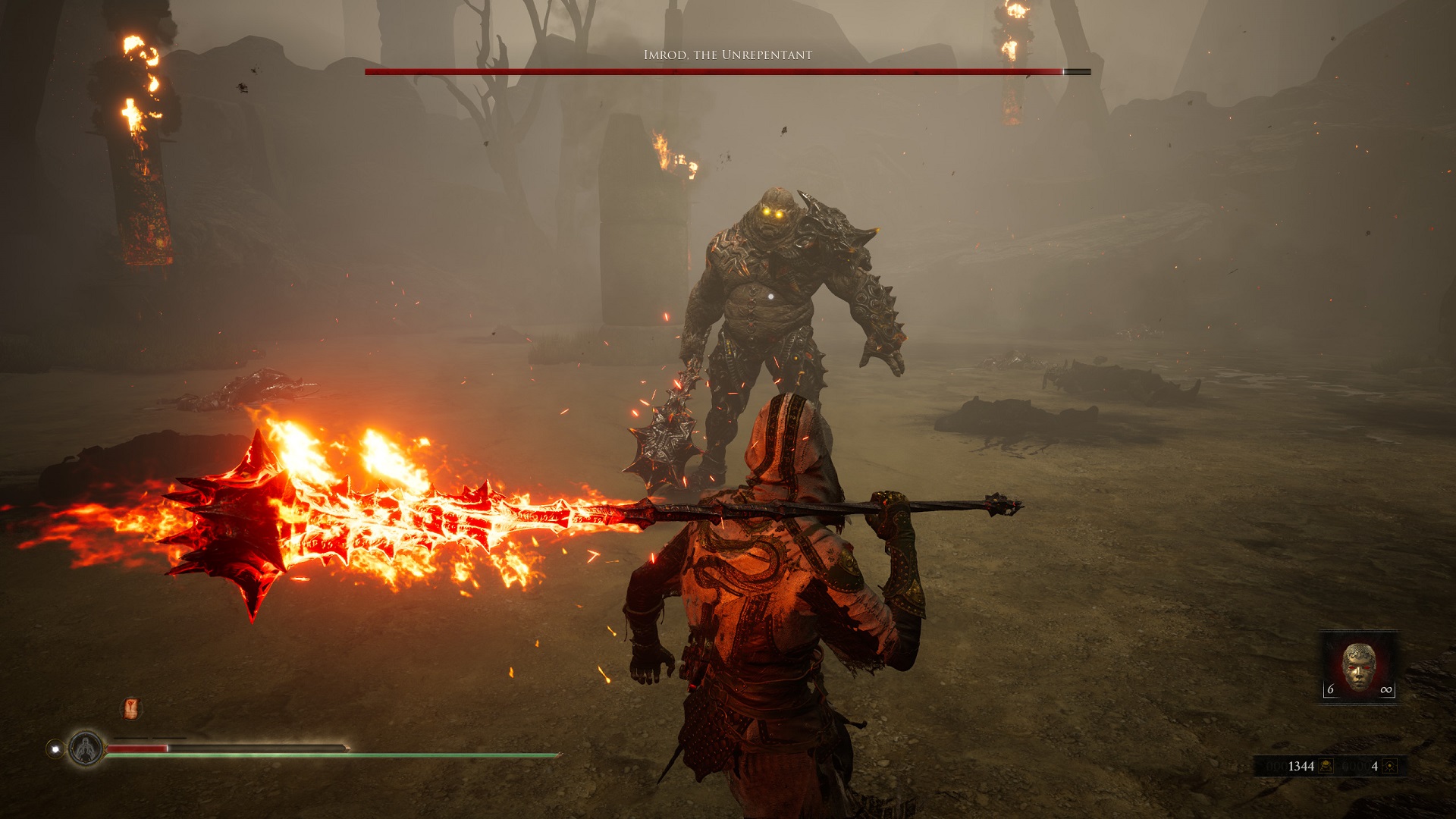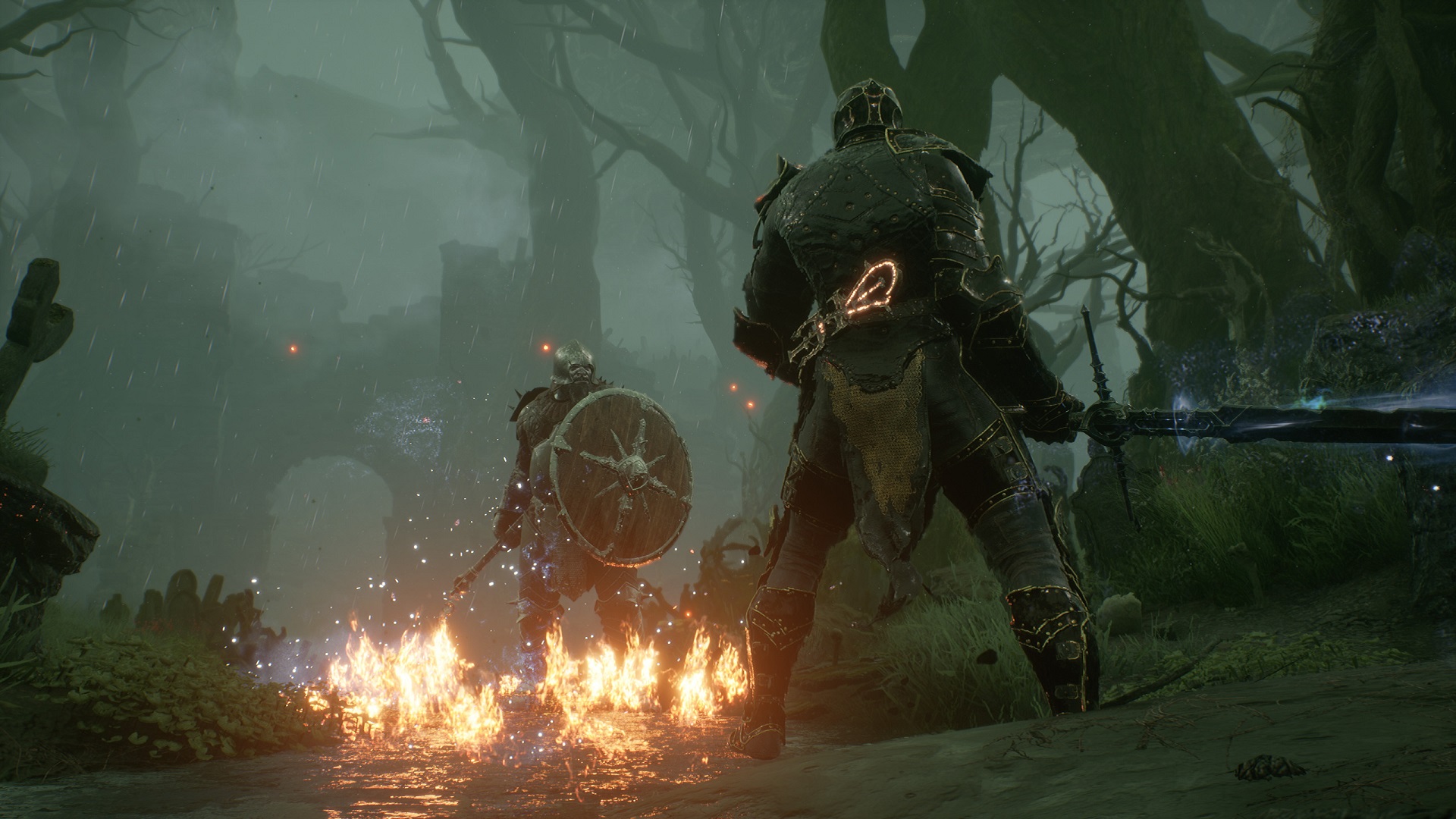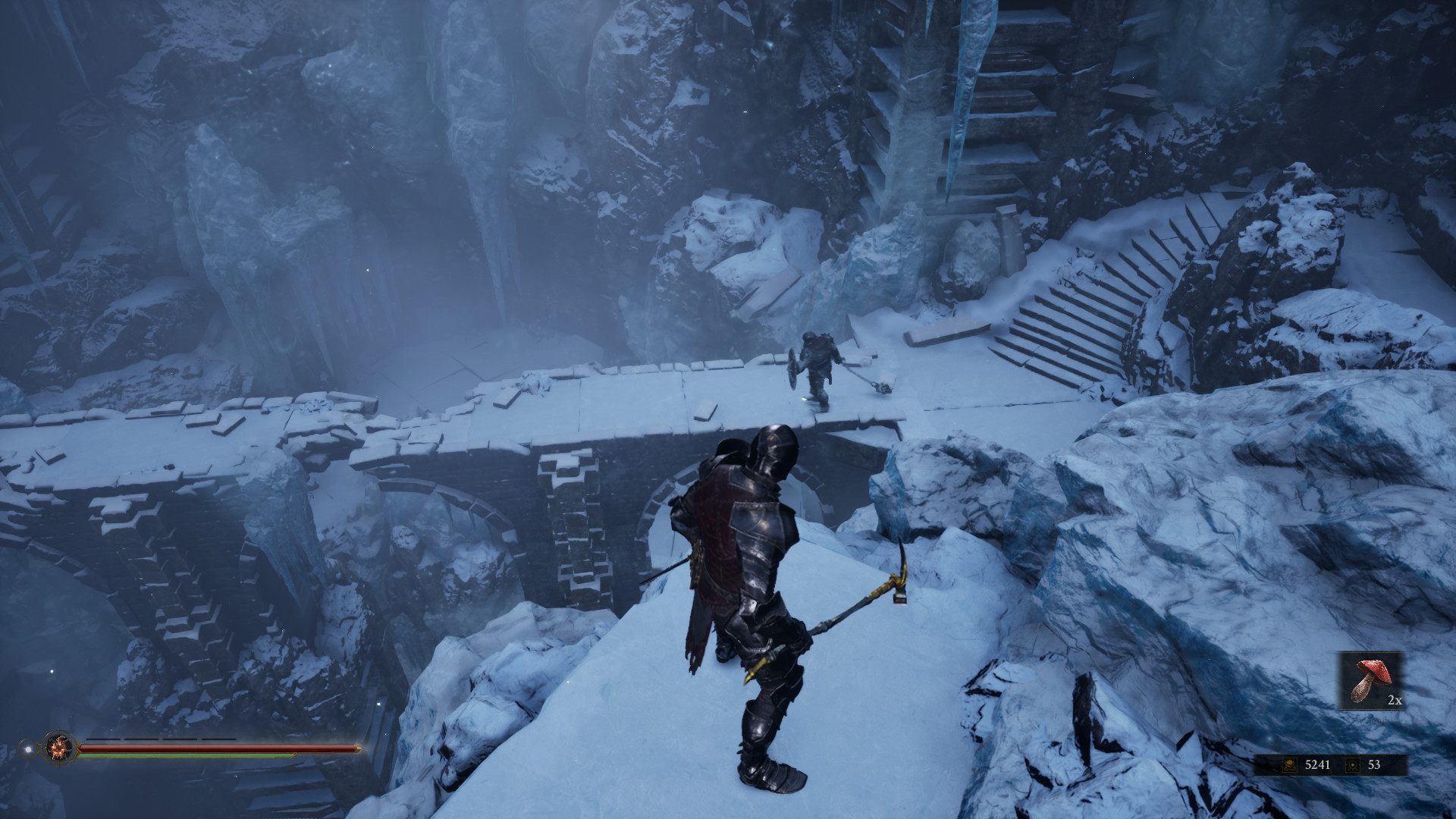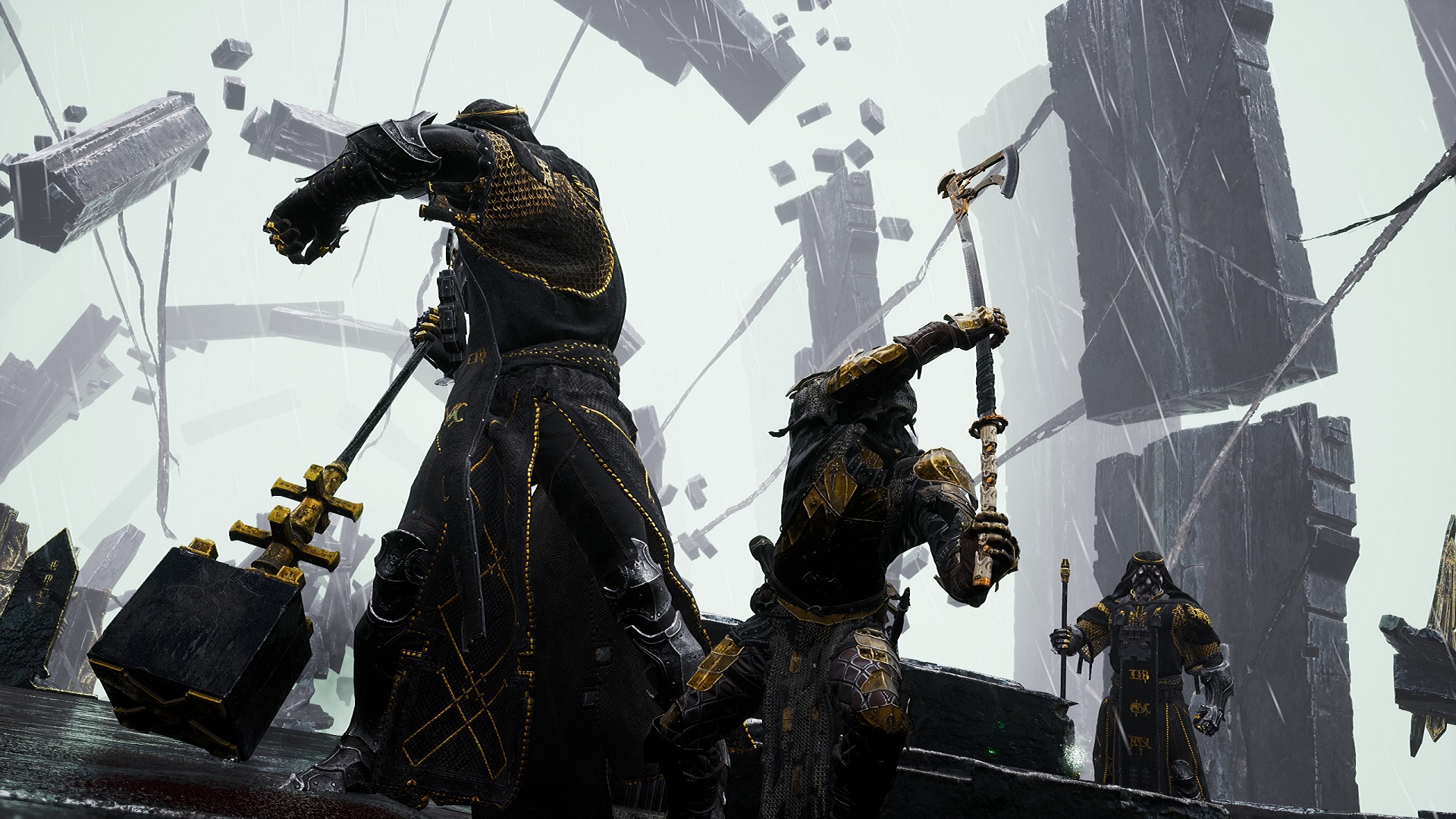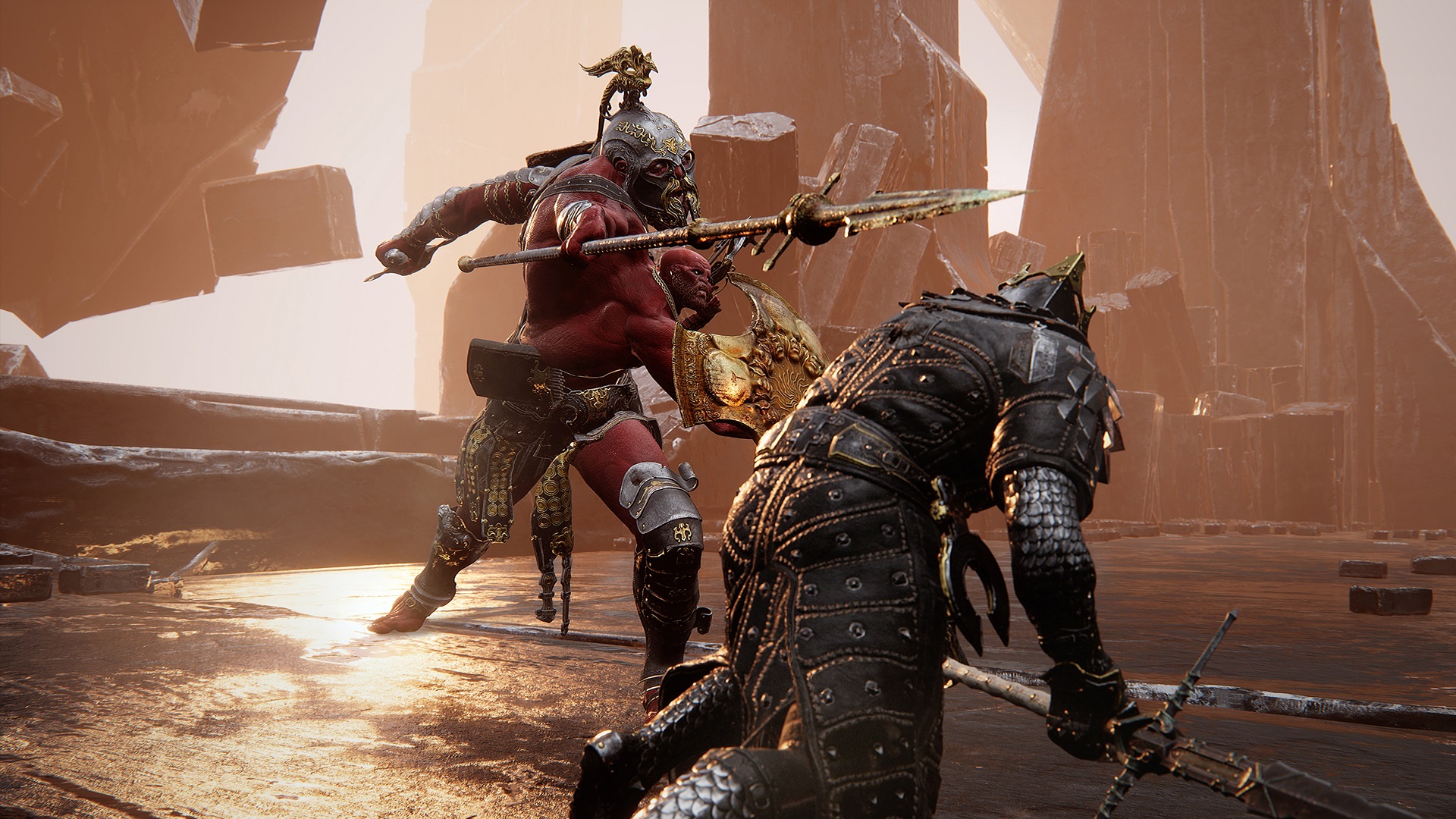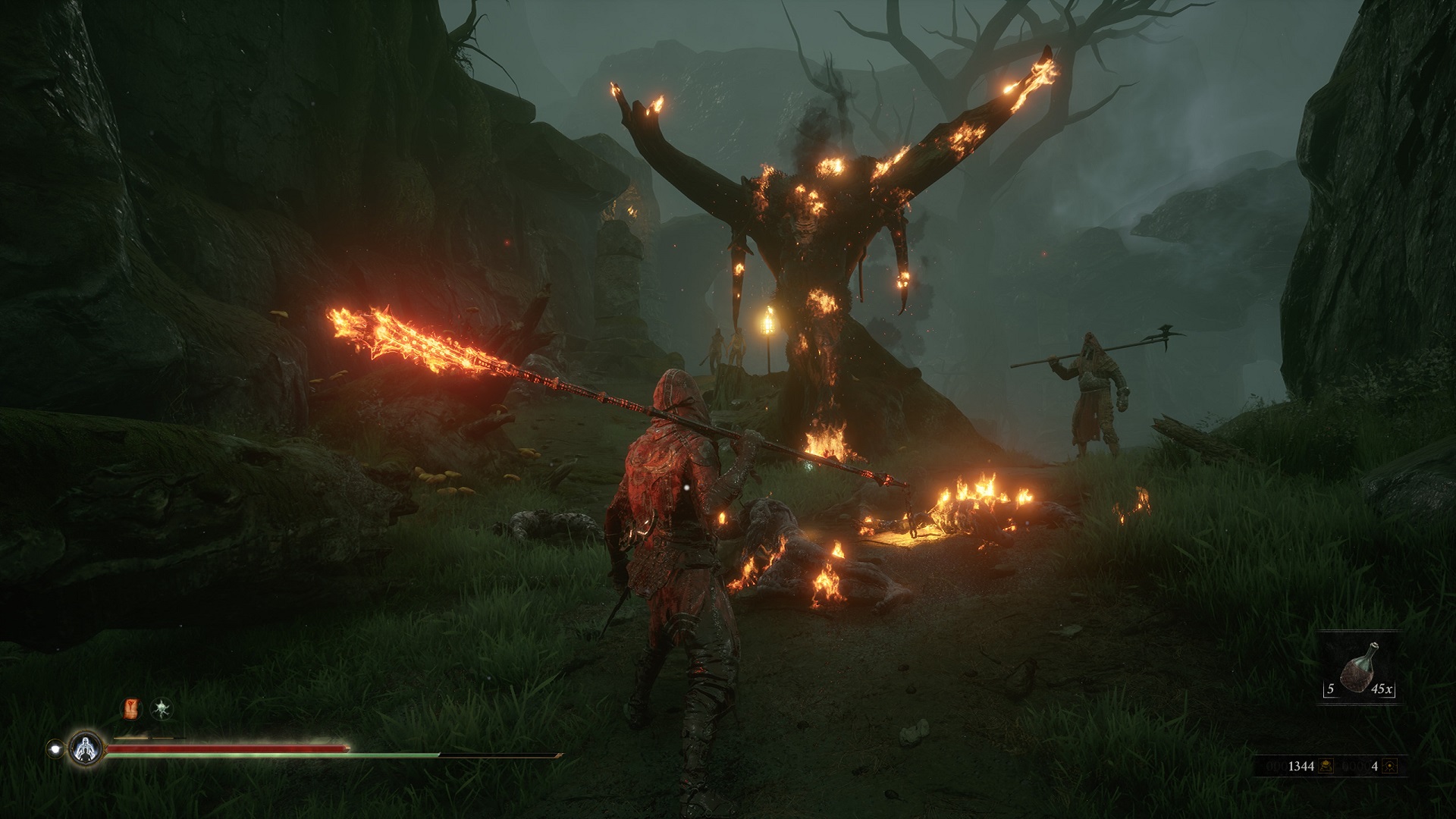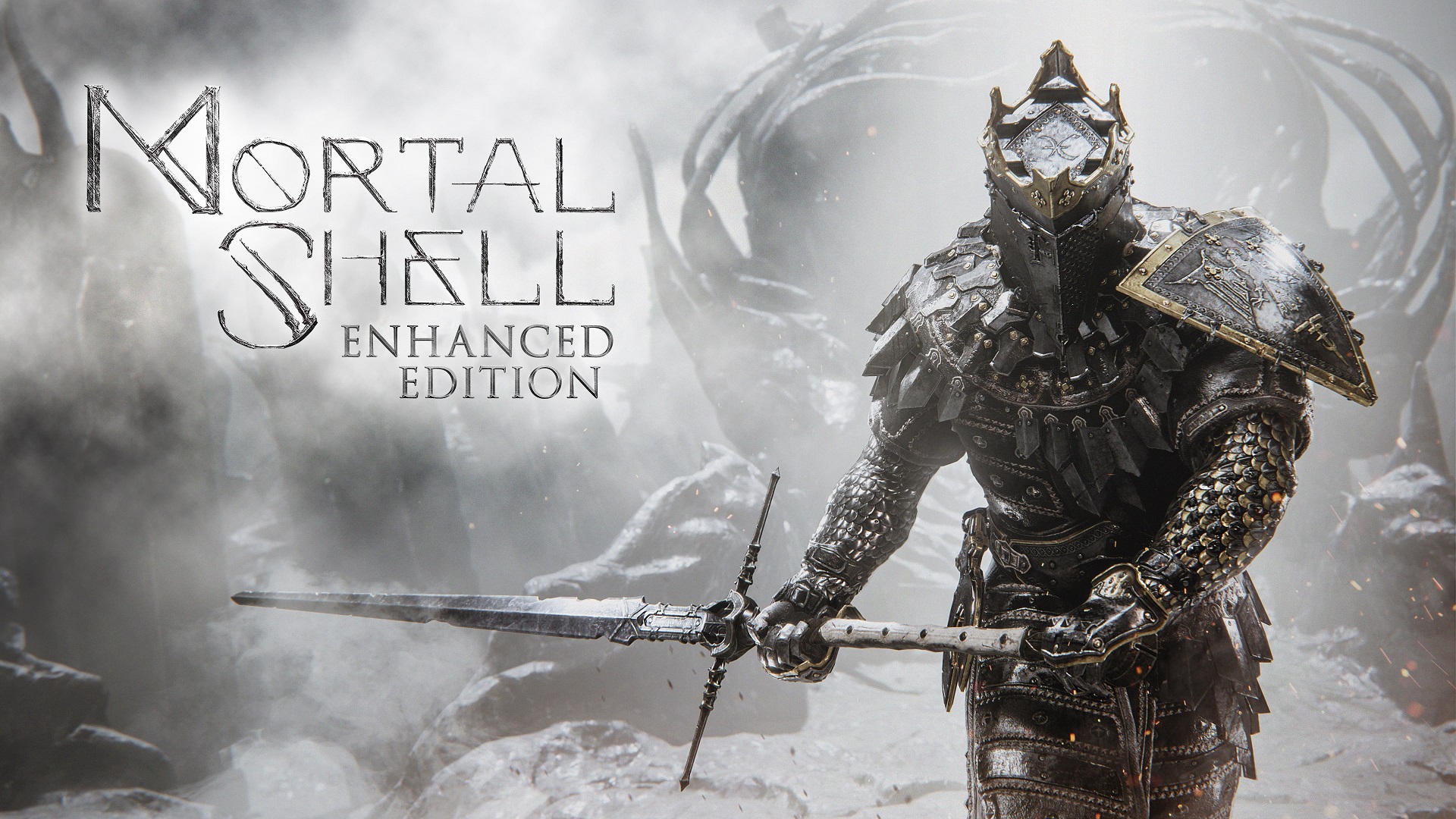
The souls-like genre is difficult to emulate, mostly because there are many subtle mechanics. On a surface level, you can see dodges, parries, large bosses, and crushing difficulty, but these characteristics are only the tip of the iceberg.
Mortal Shell is another attempt at replicating the genre; it takes place in a depressingly-gray world with muted colors, and our main hub is a massive swamp that would bring tears of joy to Hidetaka Miyazaki’s eyes if it were poisonous.
The game has no armor sets or class system; instead, you acquire a “shell”, and upgrade it by regaining some of its memories. The concept of wearing different human bodies as shells is really interesting, and they all have different feels to them despite not playing that differently.
Mortal Shell
Developer: Cold Symmetry
Publisher: Playstack
Platforms: PlayStation 5, Nintendo Switch, PlayStation 4, Xbox One, Xbox Series X/S, and Microsoft Windows (Reviewed)
Release Date: August 18th, 2020
Players: 1
Price: $29.99
I almost thought that Clash: Artifacts of Chaos was going exactly for that system when I started it, because it’s legitimately a fantastic idea. Being a parasite in a world full of things stronger than you, to the point where you have to steal a strong person’s deceased body to even stand a chance, is completely in line with FromSoftware’s themes.
Sadly, this doesn’t carry over to gameplay as well as it does thematically. The biggest problem that Mortal Shell has is how little thought was put into the combat. It feels like almost every mechanic was put into the game so the developers wouldn’t have to balance the game’s difficulty.
The player can harden in combat, making them immune to damage but also unable to move or attack, and this system mostly feels like a band-aid rather than a fun mechanic. It makes me wonder if this mechanic was added solely for the purpose of not having to balance enemy attacks.
Instead of fighting enemies regularly, the player is forced to wait for their hardening skill to be available so they can bait out a swing and retaliate once the enemy’s attack gets bounced back. This stop-and-go system makes combat a chore and forces the player to be really passive.
The player just outright gets a second chance when they die in combat as well, and this is because enemies come in large groups, hit very hard and have few gaps in their attacks, with some of them sporting insanely fast animations for no good reason.
The giants in the game’s main hub are some of the biggest examples of this; all of their swings are slow and deliberate, but they have one move that just catapults them forward into a thrust attack, where the animation honestly just looks wrong.
The game’s parry system also just feels like a beginner’s trap; not only does it have an insanely slow start-up, but enemies outright ignore it most of the time, and the player needs to spend resolve to riposte enemies.
Resolve is a resource that builds up as you hit things, and it can be used to riposte after a parry. The problem is that resolve is also spent to activate your weapon’s signature moves, which deal a lot of damage, making the riposte mechanic even more undesirable.
I have a lot of praise for Mortal Shell on pretty much anything outside of the combat system, as it has some fantastic ideas. The game’s approach to your shells and items is fantastic and helps convey the feeling of being a stranger in an unknown place.
The player doesn’t know what any of the items do and can only learn their effects after using them. Using an item multiple times also increases your familiarity with it, which can enhance its effects, usually in a beneficial manner.
This system is explained quite nicely through a musical instrument, which we pick up but don’t know how to play. Only after sitting down to play it a few times can we actually make a coherent tune.
Something that still astounds me is how pretty Mortal Shell is; it beat my GTX 1070 to a pulp when I originally played it for the first time, even forcing me to lower the shadows a little for the sake of performance, but it still looked breathtaking.
Revisiting it now with better hardware made me appreciate the graphical quality even more, and I still believe it has one of the nicest shadows in any video game. The image compression in the screenshots honestly doesn’t do it justice, especially with HDR and Ray-Tracing on.
The swamp, which serves as the hub area, is connected to three locations that house the game’s bosses. Mortal Shell has five bosses; one for each dungeon attached to the swamp, the final boss, and Hadern, which you fight multiple times to acquire new weapons.
The layout of these dungeons is pretty disappointing, and some of them have insane enemy density. The fights are usually easier than actually reaching the boss, because of high enemy density, and the fights only gets easier as you progress.
Each dungeon rewards the player with a weapon, and most of these weapons are way too slow and lock the player in animations for too long. The default starting sword feels like the best weapon in the game, aside from the hammer and chisel, which are also fast but lacking in stopping power.
It’s really disappointing that Mortal Shell is as short as it is, but it may also be a good thing, as I don’t think I really enjoyed the time I spent with it. Every area felt like a chore, and the boss fights are mostly easy and uninteresting, save for Tarsus, which is the game’s most adequate boss fight.
I initially posted a short Steam review for Mortal Shell when I first beat it, back in January of 2022, and I feel like the gist of it still holds up: “Mortal Shell starts out being crushingly difficult, then gets ridiculously easy, and then it has a terrible final boss.”
It feels dishonest to summarize an entire game in three beats, but those are quite literally the only beats Mortal Shell has; it brutalizes the player at first and then fumbles for the remaining seven hours or so, ultimately delivering an awful ending to the game.
The game’s last boss managed to glitch me under the arena multiple times and happens to be a really uninteresting encounter, similar to the Elden Beast in Elden Ring, except it also heals itself and summons enemies.
Mortal Shell is full of interesting ideas and awful execution; it’s certainly a unique attempt at a souls-like, and fittingly, it’s heavily flawed. It may be one of the nicest-looking games I’ve ever played when talking purely about the graphics and usage of shadows, but it’s also uninteresting to look at due to its drab locations.
You can find additional information about Niche Gamer’s review/ethics policy here. Mortal Shell is available on PlayStation 5, Nintendo Switch, PlayStation 4, Xbox One, Xbox Series X/S, and Microsoft Windows (through Steam).
